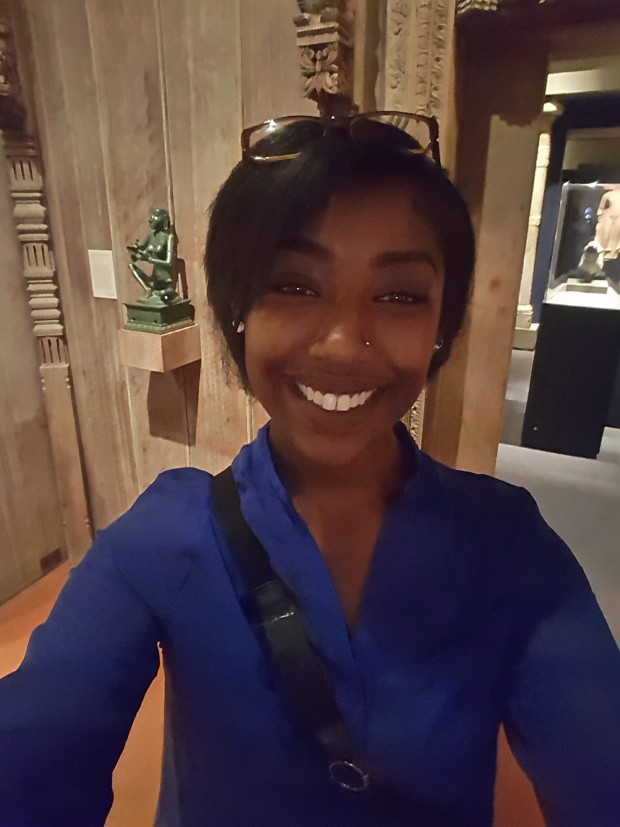
St. Thomas sophomore and videographer Deborah Honore returned to her birthplace, Ethiopia, over January Term to shoot a documentary on the relationship between nongovernmental organizations, grassroots efforts and community support in Ethiopia.
For her latest project, which is currently untitled, Honore interviewed Ethiopians and asked them what it means to be Ethiopian, what problems the country is facing and how they are being addressed.
Ethiopia’s reputation as a country of starving children is something Honore has fought since she was a little girl.
“I have had plenty of students, when I tell them I am going back home … I say this is where I’m from and they say, ‘Oh my God, is your family starving? Are they okay?’” Honore said. “There’s a sense of pity for a people you don’t even know.”
Honore agrees hunger in Ethiopia is an issue, but she wants to address the stereotype that hovers over Africa or any developing nation that accepts foreign aid, specifically regarding hunger.
“It’s a personal piece more than anything at this point, because it’s me finding the ultimate response to the notion that Ethiopia is a country of starving children,” Honore said. “Because that’s what most people think of.”
Although this stereotype upsets Honore, she understands where it comes from.
“I don’t blame people for having those opinions. Obviously, that’s what you have been taught, that’s what you have been shown,” Honore said. “But for me, this was my chance to be, ‘But we have aid, but we have the support system. We have ways to support ourselves; we are evolving.’”
While filming her documentary in Sidama, a southern portion of Ethiopia, Honore found a symbol for her documentary — a school. Sidama is densely rural, and the people barely have enough to survive. Honore spoke with an elder about the drastic changes he saw in the children and the community as a whole when education was implemented.
“There’s so much beauty in these people. They’re just struggling right now, but they are so strong, and they empowered themselves,” Honore said.
Growing up in Bloomington, Minnesota, Honore’s passion for videography started from reading and watching television.
As a child, she was fascinated with archeology and anthropology and idolized Indiana Jones.
“Documentaries — I’d watch them all the time growing up. I was a Nat Geo geek as well as a History Channel geek,” Honore said.
As Honore grew older, she developed new passions, including feminism, humanitarian efforts, social-civil rights and environmental concerns, all of which she has combined into her videography work. For Honore, videography is a vehicle of change — a visual way to connect people with issues and give them a deeper understanding of the problems at hand.
Coming to St. Thomas helped Honore pursue her enthusiasm for videography and journalism. When she started her first year, she met with Assistant Director of Media Services Brad Jacobsen in the videography department and offered to volunteer to help around the studio.
“(I wanted to) get my hand on a camera and look at what it’s like to be in this field,” Honore said.
Honore has been a work study student for Jacobsen for the past year and a half, where she plays a production assistant role. During her time working with Jacobsen, Honore has learned new editing processes on different softwares and is working on graphic production, video editing and shooting.
Jacobsen described Honore as having a diligent work ethic.
“She is always here; she will do anything that’s asked,” Jacobsen said. “She shows up, she’s on time and she is not afraid to learn to new things.”
Jacobsen is impressed with Honore’s work in Ethiopia.
“Just to go do that by yourself, to pack up equipment and travel halfway across the world … speaks volumes in itself just of her spirit,” Jacobsen said.
With Jacobsen’s help, Honore developed a love of documentary work and is now majoring in communications and journalism with a focus in video journalism. She is grateful for the COJO program, which exposed her to videography, and the network of people she met during her time here, specifically students from St. Thomas’ high school journalism program ThreeSixty Journalism.
Honore’s passion for videography stems from her desire to connect with people.
“Videography for me is one of the most compelling and powerful ways to communicate (with people),” Honore said. “I know for me personally, when I watch a video of any kind, something for me is pulled out to resonate on the same level as that video.”
In all of her pieces, Honore hopes to compel others to relate with her and gain a deeper understanding of whatever her subject matter is.
“Obviously not everyone reacts the way you want them to react, and you can’t control people’s opinions, but I think that’s the beauty in it,” Honore said.
Honore is also actively involved with other clubs and extracurricular activities such as Black Empowerment Student Alliance, African Nations Student Association, Students of Color: Claim Our Seats, and the film society. She finds these clubs as safe havens on campus that facilitate feelings of inclusion and support. Honore explained the importance of these connections.
In terms of her future, Honore believes that God has a plan for her.
“I just follow what my instincts tell me, and what God places ahead of me,” Honore said. “I am a very strong believer that God has something set up for me already, and I’m kind of just taking the steps that he sets before me.”
Emily Sweeney can be reached at swee4225@stthomas.edu.



